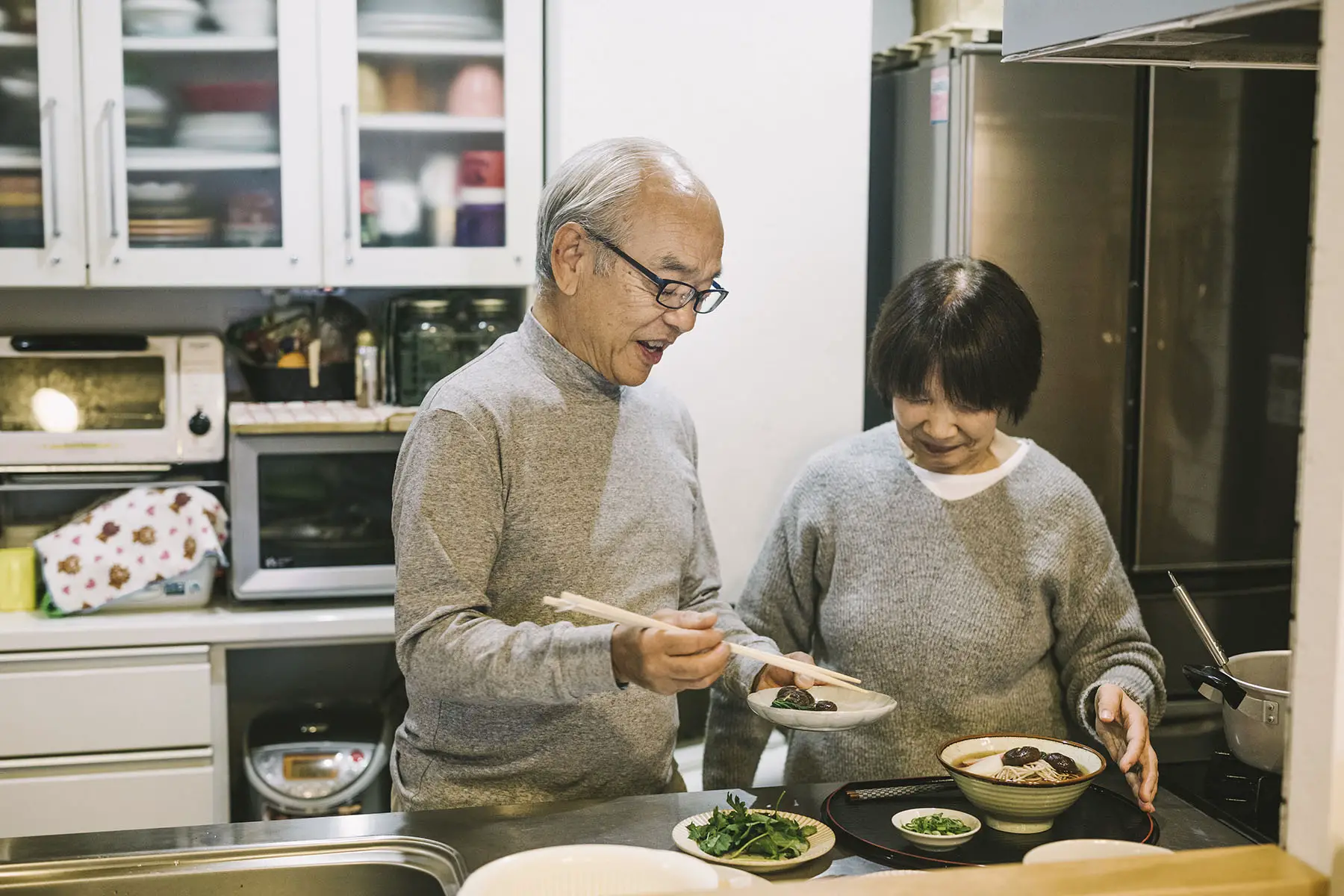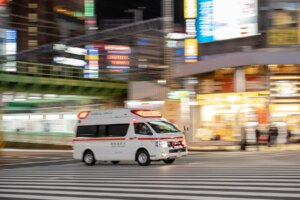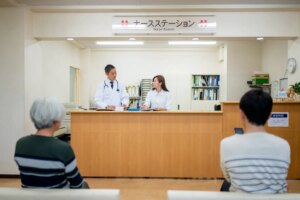After completing the biggest mass vaccination program in its fight against COVID-19, Japan again opened its borders in 2021. From April 2023, you no longer need to be vaccinated against the virus to enter the country.
If you’ve grabbed this opportunity to move to Japan, you would undoubtedly have a long checklist of things to arrange. Aside from all the basic stuff like securing a home and finding a job, you’ll have to take out health insurance and work out the national vaccination schedule.
Discover all you need to know about Japan’s vaccinations (予防接種, yobo sesshu) by exploring the following topics:
- Overview of the Japanese vaccination system
- Does health insurance cover vaccines in Japan?
- Which vaccinations do children get?
- What is the vaccination schedule in Japan?
- Does Japan offer COVID-19 vaccinations?
- Specific vaccinations for pensioners
- Vaccinations for special groups
- Can you access travel vaccinations in Japan?
- Useful resources
Cigna Global
Enjoy peace of mind while living in Japan with Cigna Global’s long-term international health insurance plans (12+ months). Get tailored coverage, direct billing with many providers, complex case management, and global care on demand, with access to a network of 1.5+ million doctors, specialists, and therapists.
Overview of the Japanese vaccination system
The Ministry of Health, Labour, and Welfare (MHLW – 厚生労働省, Kosei Rodo Sho) implements and coordinates the Japanese vaccination programs. It launched its first one in 1876, initially to tackle smallpox. Today, any resident can easily access this immunization system.
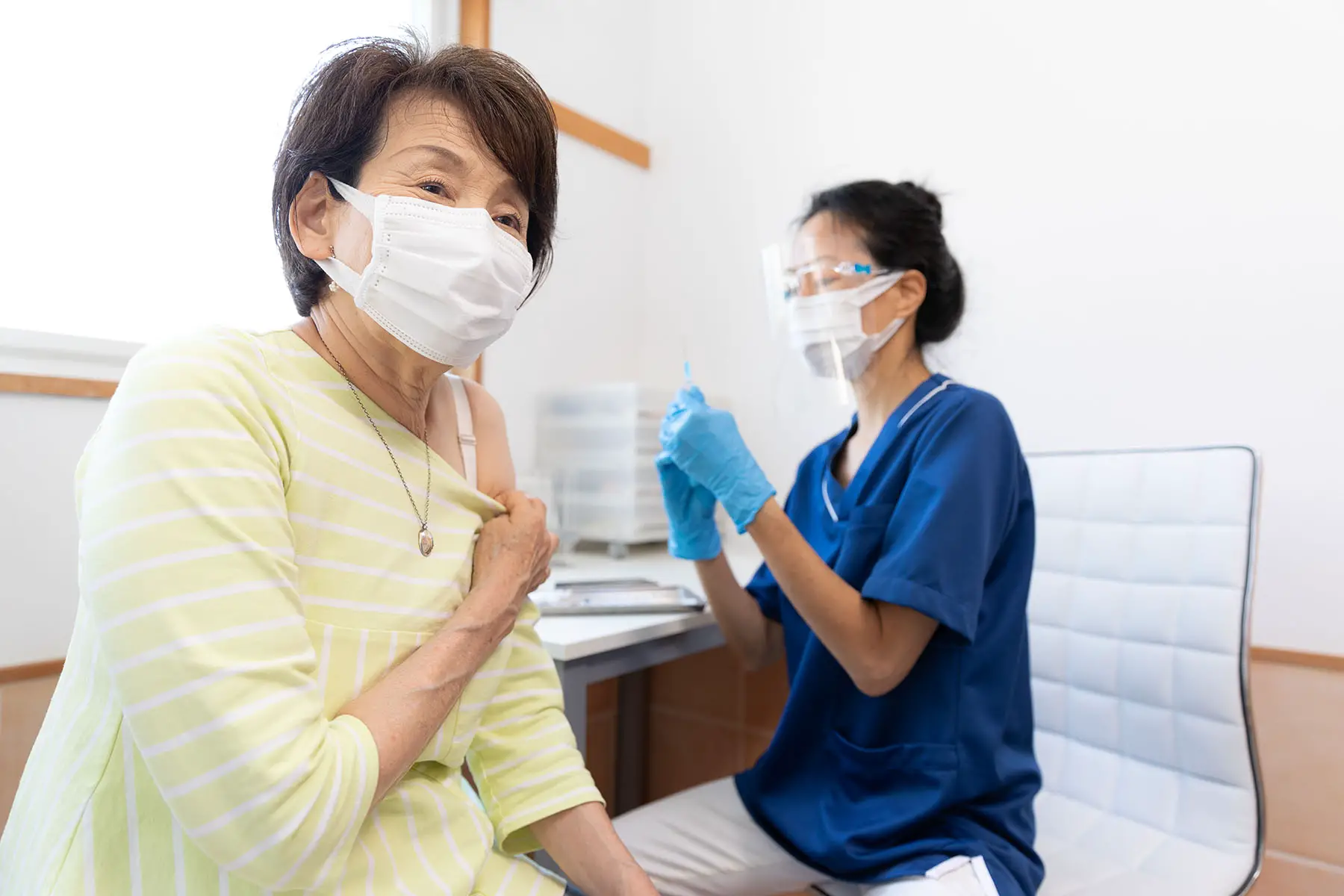
However, historically there has been a lot of public skepticism concerning vaccinations. The Lancet’s pre-COVID report (2020) indicated that fewer than one in three of Japan’s population believed vaccines were safe, important, or effective, mainly because of highly publicized fears over side effects.
As such, Japan has one of the lowest rates of vaccination takeup in Asia and is significantly behind Europe and the US (where the figure is around 50%). Therefore, its COVID-19 vaccine rollout was a major challenge for the government in the early days due to its residents’ hesitancy.
In big cities, such as Tokyo and Osaka, clinics catering specifically to internationals have English-speaking staff who provide advice on the vaccination regime and tips on how to protect you and your loved ones while living in the country.
Does health insurance cover vaccines in Japan?
Generally, the costs of routine vaccines are covered by public health insurance.
Japan’s vaccination regime, governed by the 1948 Immunization Act (予防接種法, yobo-sesshu ho), distinguishes between routine and voluntary immunizations. While the healthcare system includes routine vaccinations, you must pay for voluntary vaccinations or claim the costs back from your private health insurance (if you have a policy.) Reputable health insurance providers in Japan include:
Which vaccinations do children get?
The Immunization Act recommends several vaccinations for babies and children, including the following routine ones.
Routine vaccinations
- Bacillus Calmette–Guérin (BCG) vaccine: against tuberculosis
- DPT/IPV vaccine: against
- diphtheria
- tetanus
- pertussis/whooping cough
- polio
- DT vaccine: against diphtheria and tetanus
- Haemophilus influenza type B (Hib) vaccine: against flu
- Hepatitis B vaccine (HBV): against hepatitis B
- Human papillomavirus (HPV) vaccine: reduces the risk of cervical cancer
- Japanese Encephalitis (JE) vaccine: against JE
- MMR vaccine: against mumps
- MR vaccine: against measles and rubella
- Pediatric Pneumococcus vaccine (PCV13): against pneumococcal meningitis and pneumonia
- Rotavirus vaccine: against rotavirus
- Varicella vaccine: against chickenpox
Recommended vaccinations
In some circumstances, doctors would also recommend the following inoculations for high-risk individuals:
- Hepatitis A vaccine (which is transmitted through contaminated food or water)
- Encephalitis vaccine
- Tick-borne encephalitis (TBE) vaccine
Most of the above vaccinations are administered by injection in the arm or the thigh and require only one to two doses with a waiting period of a few weeks in between.
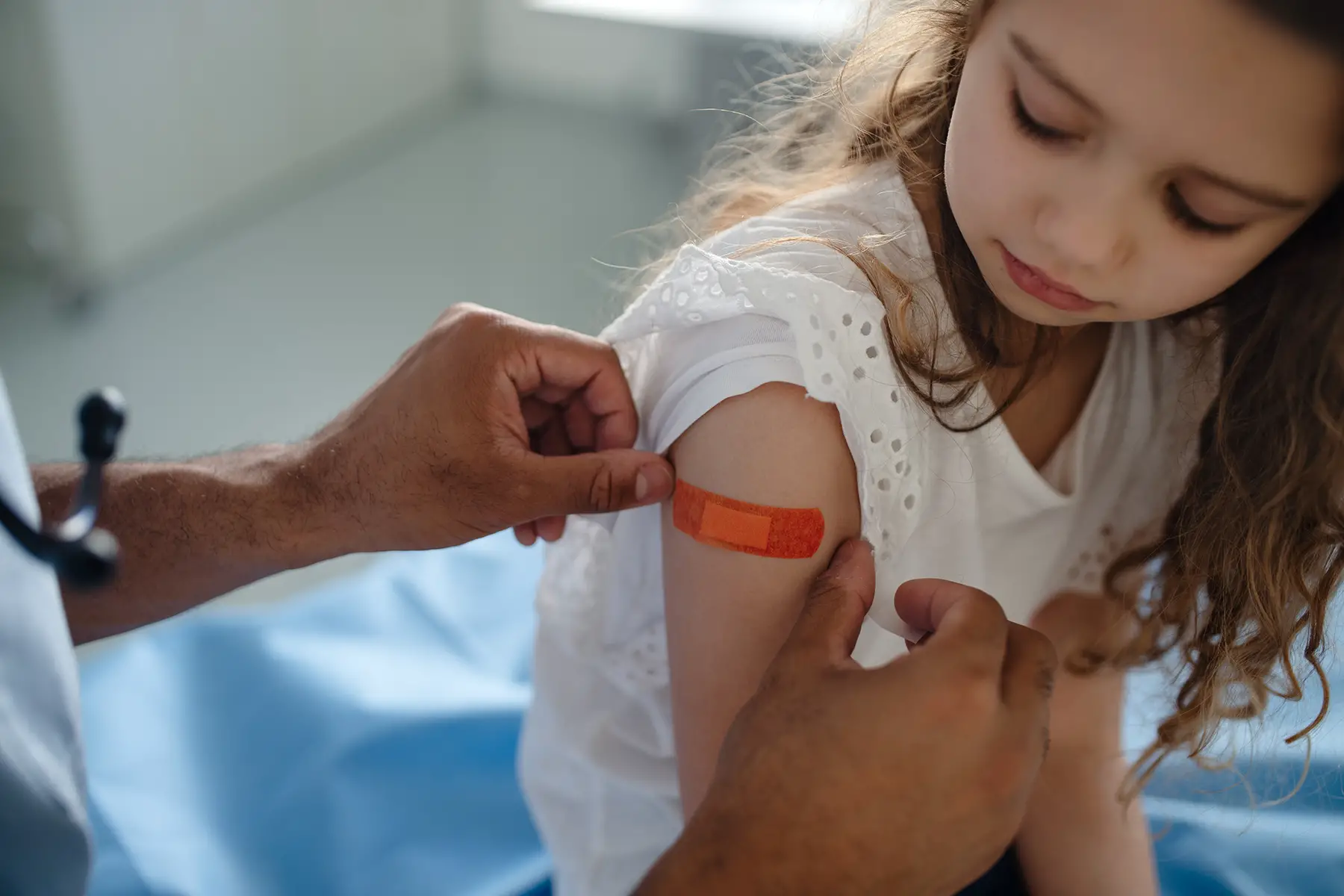
Many Japanese cities and regional health authorities use child healthcare support apps to help parents and caregivers keep up with vaccination schedules and book clinic appointments. However, from mid-2023, these apps are only available in Japanese. Check with your doctor which ones they use and how you can register.
The Ministry publishes a detailed schedule of the age at which vaccines should be administered. It is essential to stick to this schedule, or the government will not cover the cost. If you need to go to a private clinic, expect to pay around ¥3,800 to 16,500 per shot, depending on the type of injection and your eligibility.
How do you register your children for vaccinations?
You can register your children for immunizations in two ways:
- At your local ward center or municipality – find more information on the MHLW’s portal, FORTH
- Through their school
Your local ward center (e.g., in Tokyo) issues the Maternal and Child Health Handbook (母子健康手帳, boshi kenko-techo) and the vaccination vouchers (予防接種券, yobosesshu ken), which you redeem at a health clinic for routine immunizations. Notably, these vouchers are only valid in the city or prefecture they were issued.
You must book a vaccination appointment and take along some form of ID for your child (e.g., passport or Health Insurance Card (健康保険証, kenko hoken sho). If you live outside bigger cities, you may need at least basic Japanese language skills to communicate with the medical staff.
Another option is to coordinate vaccinations through your child’s school. All international schools in Japan have on-campus clinics and will arrange vaccinations in line with the government program.
Are there any other optional vaccinations?
Japanese health services offer a wide array of voluntary vaccinations for residents, but you would need to pay for these, or some private health insurance providers may cover it, at least in part.
These include but are not limited to:
- Recombinant Zoster Vaccine (RZV) against Shingles for adults aged 50 and older
- Influenza vaccine for older adults aged 65 or 60 if they have compromised immunity
- Hepatitis A (HAV) vaccine
- Meningococcus (B and C) vaccine against meningitis
What is the vaccination schedule in Japan?
The Infectious Disease Surveillance Center (IDSC – 感染症情報センター, Kansensho Joho Senta) publishes a comprehensive vaccination schedule for children offering key dates when they should receive their routine vaccinations.
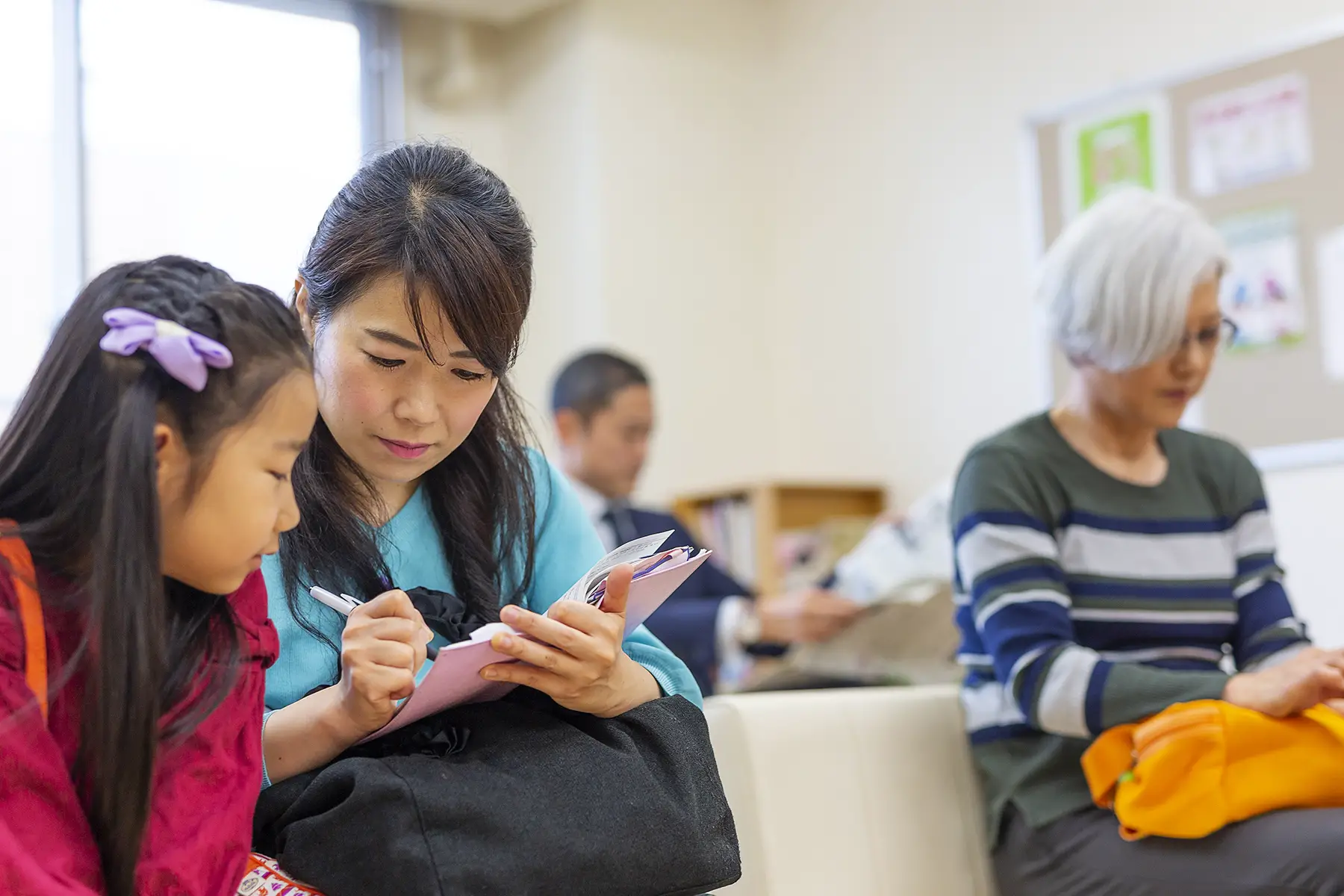
A list of inoculations and timelines follows:
Before starting primary school
| Vaccine | Timeline |
| Hib vaccine | Between 2 months and 5 years |
| Pediatric pneumococcal vaccine | Between 2 months and 5 years |
| DTP/IPV | Between 3 months and 7.5 years |
| Japanese encephalitis | Between 6 months and 7.5 years |
| BCG | Before 12 months |
| Hepatitis B | Before 12 months |
| Varicella | Between 12 and 36 months |
| Polio | Vaccine 1 – between 12 and 24 months Vaccine 2 – in the year before starting primary school |
| MMR | Vaccine 1 – between 12 and 24 months Vaccine 2 – in the year before starting primary school |
Secondary school
Secondary school children can access the following routine vaccinations as part of the national program:
| Vaccine | Timeline |
| Japanese encephalitis | Between 9 and 13 years |
| Diphtheria | Between 11 and 13 years |
| Tetanus | Between 11 and 13 years |
| HPV (only girls) | Between 12 and 15 years |
You can find more detailed information about the national vaccination schedule in Japan on the website of the Japanese Pediatric Society (JPS – 日本小児科学会, Nihon Shonika Gakkai).
Does Japan offer COVID-19 vaccinations?
Japan offers Pfizer, Moderna, and Novavax COVID-19 vaccinations and boosters free to its residents and citizens but, unfortunately, may refuse access to undocumented immigrants. Typically, you will receive a vaccination voucher or notification from your municipality for this jab.
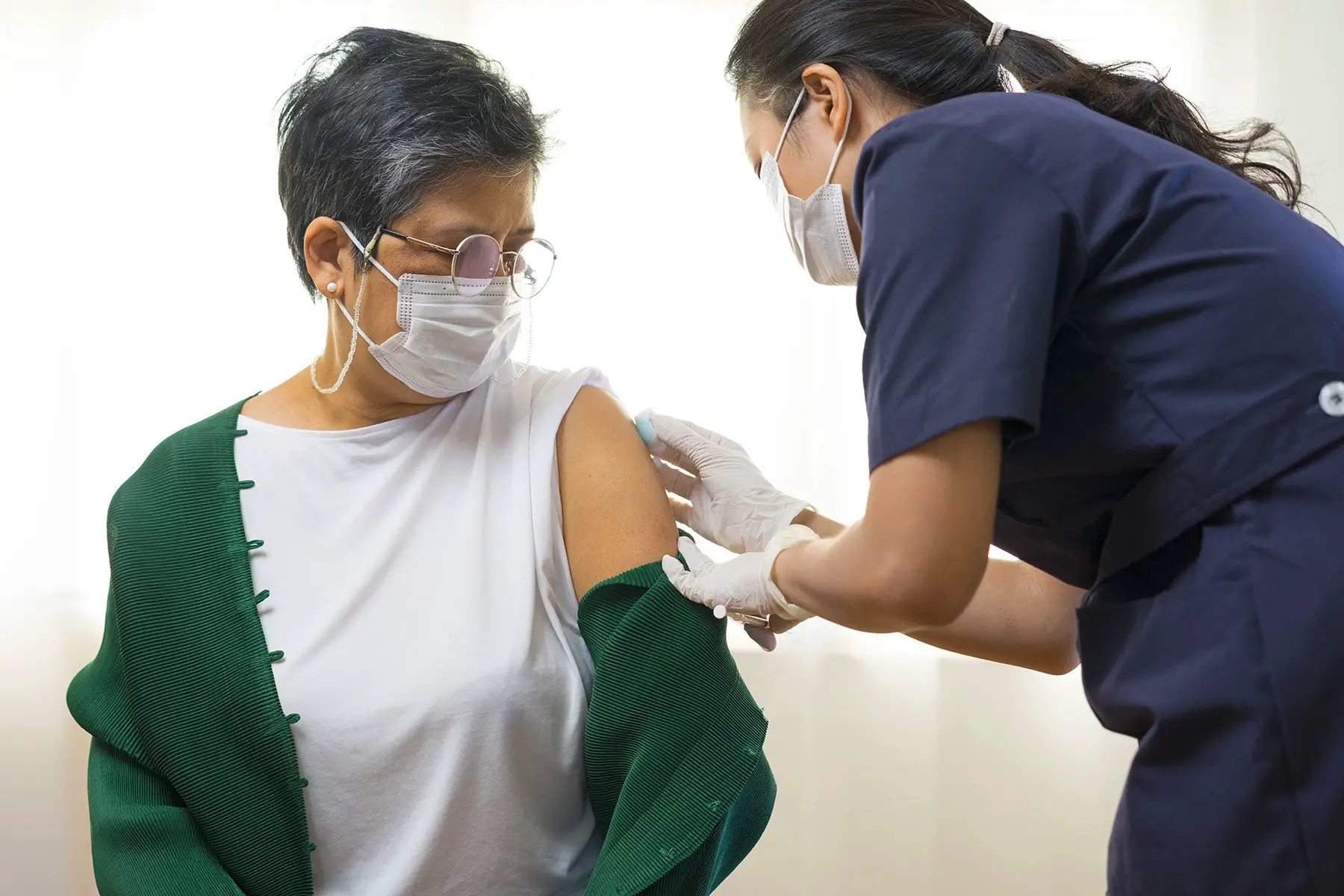
You can also access detailed information about the latest vaccination protocols, call centers, where to get boosters, and how to make an appointment on the MHLW website.
Specific vaccinations for pensioners
Vaccines are freely available for this age group. Doctors typically recommend the influenza vaccine once a year – at the end of autumn or the beginning of winter – for people older than 60. The specific advice is as follows:
- Ages 60–64: with restricted daily activities due to heart, kidney, or respiratory dysfunctions (disability level 1)
- Ages 60–64: with restricted daily activities and compromised immunity due to being HIV positive (disability level 1)
- Ages 65 plus
However, according to a 2021 report by Japan Health Policy Now (JHPN), only half of the senior population in Japan was vaccinated against the flu, and around a third have received the pneumococcal vaccine, mostly due to vaccine hesitancy, as mentioned before.
Vaccinations for special groups
Pregnant women can get the flu and tetanus shots but should avoid live vaccines (e.g., MMR, tuberculosis, and yellow fever) until the baby is born.
Also, individuals with compromised immunity, or long-term or acute health conditions should consult their doctor or health professional before getting any vaccination.
Can you access travel vaccinations in Japan?
Few countries require tourists to show proof of vaccination as a condition of entry. That said, when traveling overseas, it is good to protect yourself against any endemic or prevalent diseases at your destination.

Always do your research. Foreign ministry websites often publish a wealth of up-to-date information on the health situation and recommended inoculations. Normally, you can book appointments at your local ward center or health clinic for travel vaccinations. Typically, these jabs will protect you against diseases, such as:
- Cholera
- Typhoid
- Polio
- Tetanus
- Malaria
- Yellow fever
Usually, you will receive either a single dose or a booster if you had one recently.
Useful resources
- Centers for Disease Control and Prevention (CDC) – a useful reference of the Japanese vaccinations scene for internationals
- Infectious Disease Surveillance Center (IDSC) – a wealth of information and data on diseases in Japan and its vaccination programs
- Ministry of Health, Labour and Welfare (MLHW) – mostly in Japanese, but the English pages are useful for the latest information on COVID-19 vaccines
- Tokyo Metropolitan Government – a useful resource for residents, plus information on COVID-19 vaccinations for visitors



